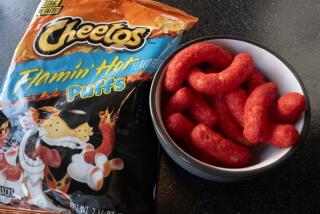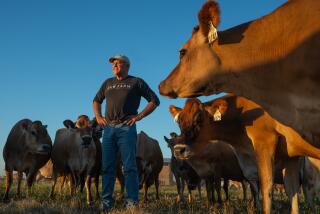Oprah Wouldn’t Be Cowed
From the get-go, the beef industry’s claim against Oprah Winfrey sounded like a Texas tall tale, a damage claim based on Texas’ so-called veggie libel law--a statute intended to protect food products against disparaging comments.
An Amarillo jury agreed Thursday, rejecting a suit by Texas cattlemen who contended that Winfrey’s televised comments about “mad cow disease” caused the beef market to plunge and cost them millions.
The claim was originally based on that state’s “food libel” statute, a law as ridiculous as it sounds. Texas is one of 13 states with laws to protect agricultural products--actually to protect farmers and ranchers--from false and disparaging remarks. Remarks like President George Bush’s expression of dislike for broccoli, a sentiment that, last we checked the 1st Amendment, he was perfectly entitled to utter. (Fortunately, efforts to enact a similar law in California have failed, but not for want of trying.)
In the Texas suit, the cattle industry claimed that in an April 1996 “Oprah” show on dangerous foods, Winfrey and her guest, a vegetarian activist, gave the false impression that American beef could spread mad cow disease to people. But after five weeks of testimony, the judge threw out the libel claim, leaving the cattlemen to meet a much higher burden of proof: They had to show Winfrey deliberately or recklessly hurt their business by way of false statements. This possibility was too much to swallow even for the Texas jurors, some of whom had family members with ties to the beef industry.
Winfrey is wealthy enough to have settled this case without a trial, but she chose to challenge the absurd veggie law. Her victory should end this kind of bull.
More to Read
Sign up for Essential California
The most important California stories and recommendations in your inbox every morning.
You may occasionally receive promotional content from the Los Angeles Times.










